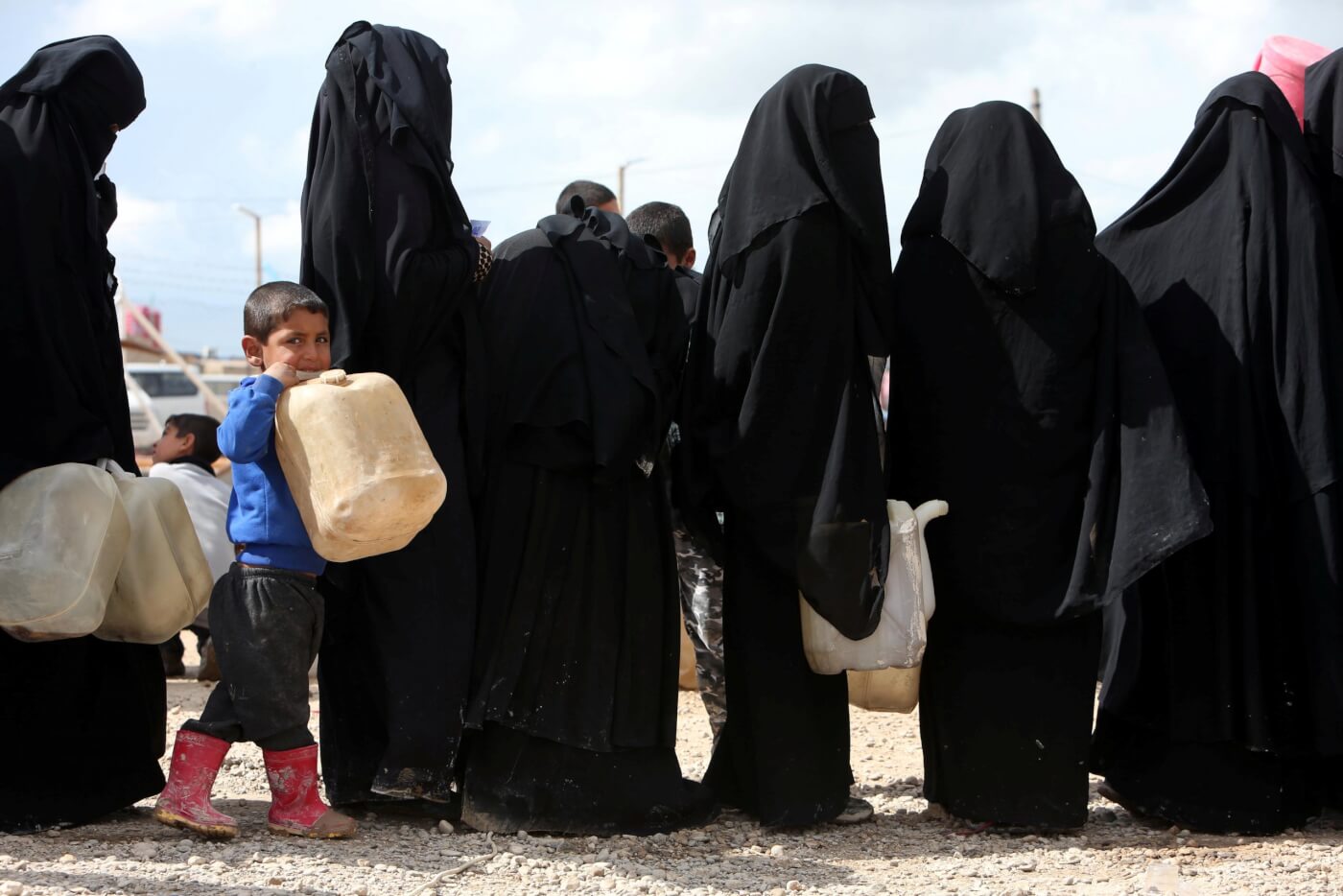The French foreign ministry announced on Monday (22 June 2020) the return of 10 French children of jihadist fighters in Syria. The children were returned on an overnight flight from refugee camps in northeast Syria.
The operation is the latest in the piecemeal repatriation of French children stuck in Syria. The French government has now presided over the return of 28 children since the so-called Islamic State was defeated and driven out from its Syrian stronghold in March 2019.
In a statement the French foreign ministry said:
“France has carried out the return of ten French minors, orphans or humanitarian cases, who were in camps in northeast Syria…These children have been turned over to French judicial authorities, are receiving medical treatment and have been taken in by social services,”
The ministry also “thanked” the Kurdish authorities for their cooperation in the operation which was carried out “because of the particularly vulnerable situation these children were in, and with the authorisations provided by local authorities”.
However, the foreign ministry did not provide any details on the repatriation of these children’s parents.
Hundreds of French citizens made the journey to Syria to fight alongside ISIS as they attempted to create their “caliphate”. The repatriation of children who accompanied their parents to the conflict zone, or who were born there during the fighting, has been the source of much debate across European countries over the last few years.
Back in March 2019, immediately following the fall of ISIS in Syria, the International Observatory of Human Rights brought together families, legal professionals and representatives of non-governmental organisations to discuss how to create pathways for children of jihadists to be repatriated.
Sadly, 12 months later national governments across Europe continue dragging their feet for fear that any return of jihadist fighters would run counter to broader public opinion on the issue.
Some countries have been actively revoking the citizenship of individuals to quash any attempt of return, such as in the high profile case between Britain and Shamima Begum.
The inaction of European governments is often coming over the objections of their own security officials’ recommendations. This led to Thomas Renard, a terrorism expert at the Brussels-based Egmont Institute saying:
“There is a disconnect between the political world that is very concerned about the political risks that are associated with the repatriation of terrorists, and the various services that are dealing with counterterrorism daily…Having these individuals here, prosecuting them here, is not only feasible but also probably less problematic.”
There are still an estimated 300 French children being held in the Kurdish-run camps in Syria who remain under the care of family members. France has previously insisted that it will not return adults who travelled to Syria at their own discretion, rather they should remain and face local justice.
The Kurdish forces have tended to be unwilling to split families apart, especially mothers from their children.
The result is that many children and their families are left to remain in the inhumane conditions of refugee camps and exposed to all the risks and psychological trauma that comes with it. The threat to these families is only increased as a result of the coronavirus pandemic.
Some 12,000 foreign women and children – around 4,000 women and 8,000 children – are being held in three camps across northeast Syria, mostly in the infamous Al-Hol. Aid groups have warned that the overcrowded conditions in these camps, coupled with the poor provision of food and basic amenities is leading to widespread malnutrition and disease.
Kurdish officials have called on countries to take back all detained citizens, not just children, warning that they lack the capacity to guard these camps indefinitely.
The United States has also previously urged European countries to do more to repatriate its citizens. In June 2019, James Jeffrey, the U.S. special representative for Syria engagement, told reporters:
“It is not a solution to leave these people in camps in northeast Syria. This is a burden on the people of northeast Syria…It is absolutely imperative that countries take action as necessary to deal with their own citizens.”
Trump echoed the sentiment by tweeting;
“European countries are not helping at all, even though this was very much done for their benefit. They are refusing to take back prisoners from their specific countries. Not good!”
However, Trump has since been widely condemned for removing US troops from Syria, a move that is seen as betraying his Kurdish allies. Alone, the Kurdish authorities will not be able to ensure that the camps containing ISIS prisoners remain secure, Trump’s withdrawal may eventually lead to a revival of ISIS in the area should these camps fall.
The French line that it is appropriate for its citizens to face local justice is also flawed. According to the CAT terrorism analysis centre, 13 French jihadists – including Hayat Boumedienne who was the partner of one of the three men who carried out the deadly terror attacks in Paris in January 2015 – have escaped custody in Syria.
The return of these 10 French children is of course welcome. However, in light of the new threat coronavirus poses, as well as the longevity of these camps being questionable, governments across Europe should make moves to repatriate all remaining citizens stuck in Syria; The alternative could be much worse.

